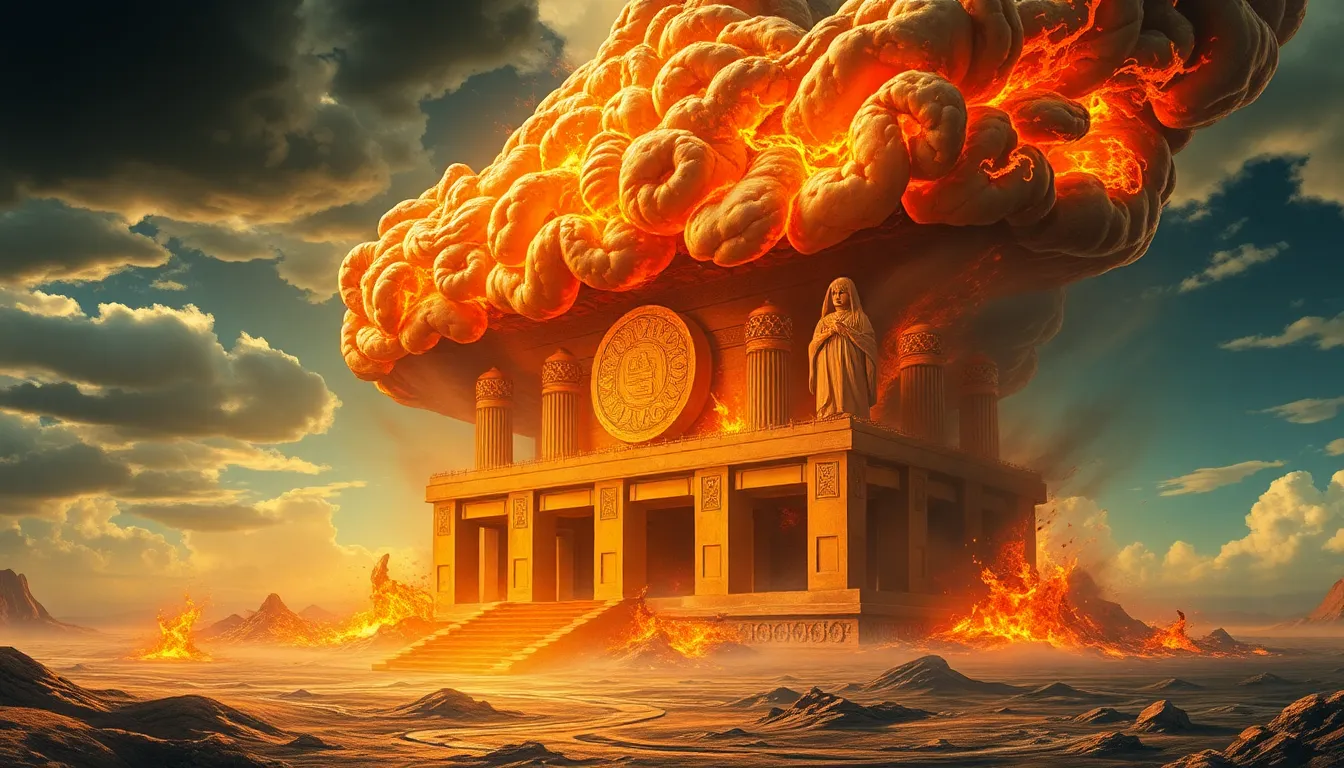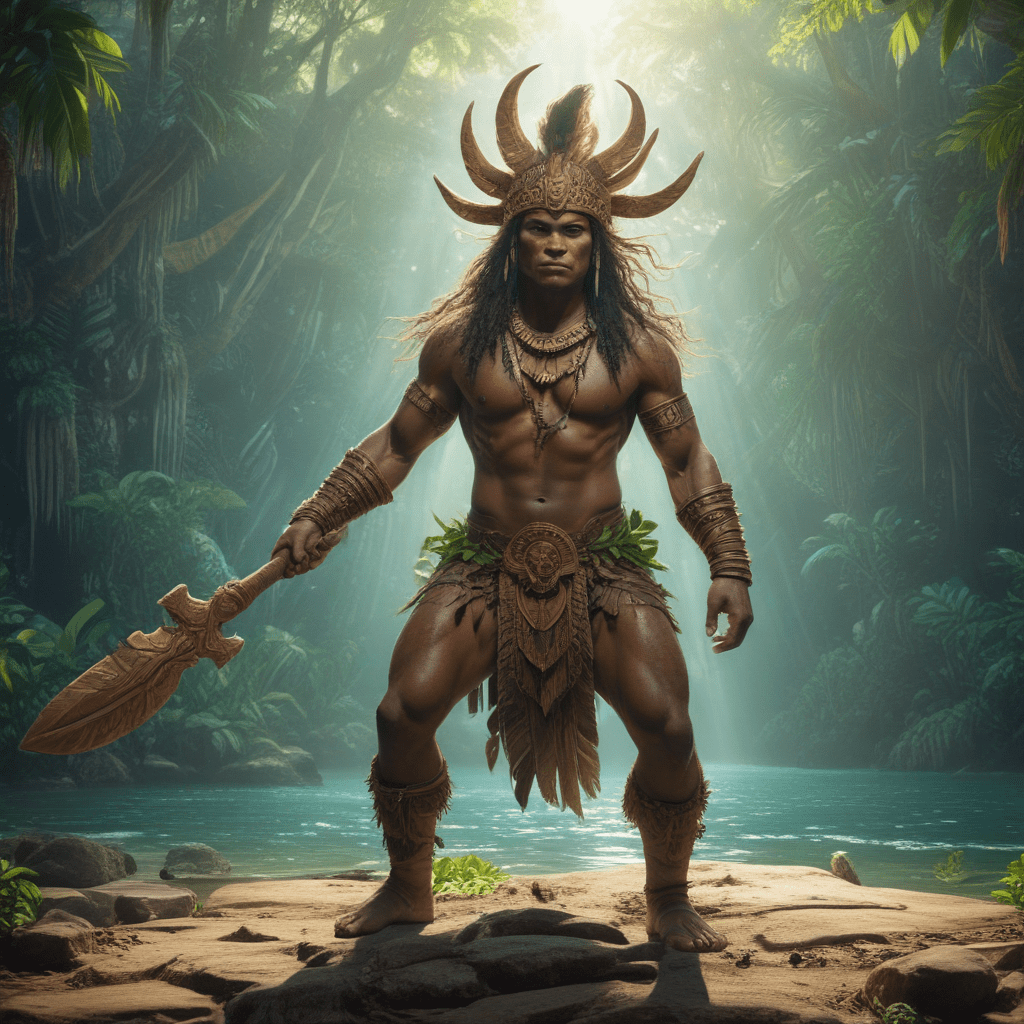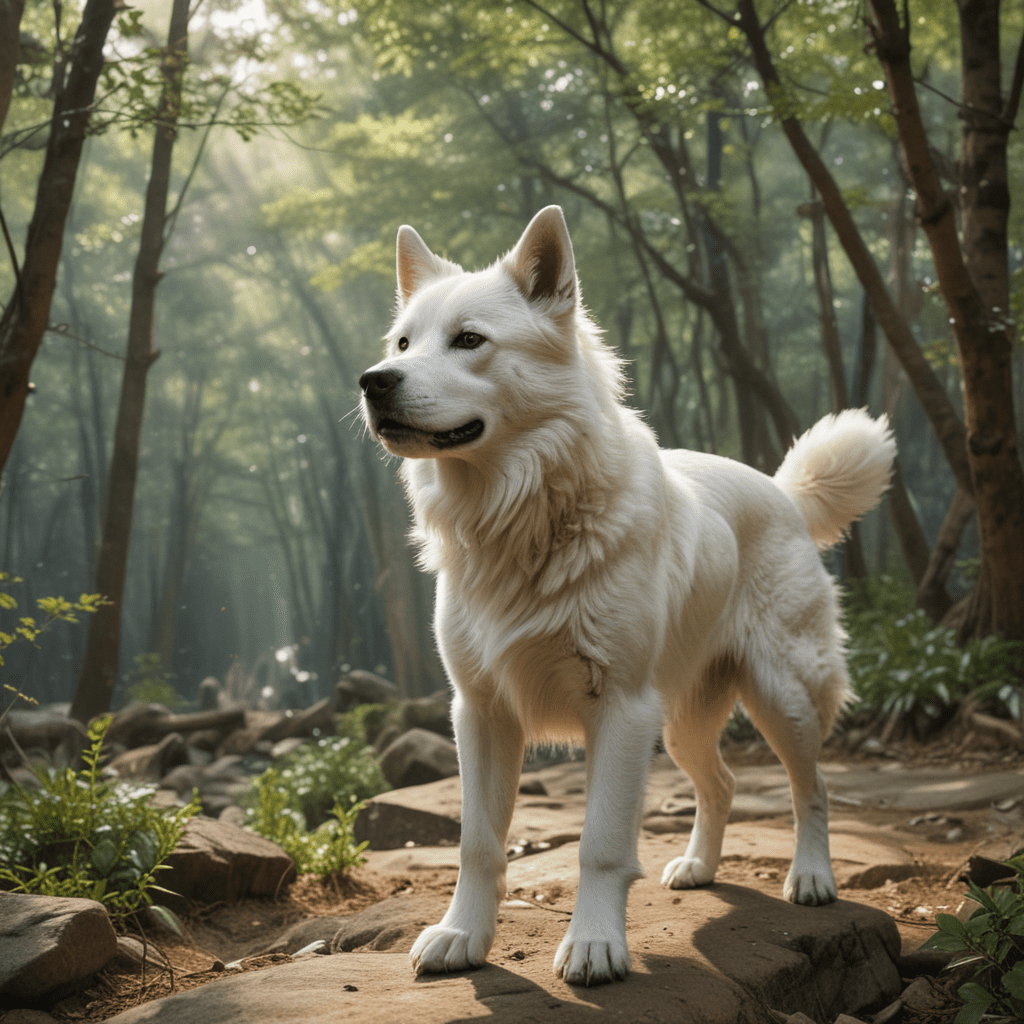Thai Mythology: Rooted in Animism
Thailand's rich tapestry of mythology is deeply woven with the threads of animism, a belief system where spirits and supernatural beings are thought to inhabit the natural world. This ancient worldview has profoundly shaped Thai culture, traditions, and even daily life. Animistic beliefs are deeply rooted in the Thai psyche, influencing everything from rituals and ceremonies to the way people interact with their environment.
The Influence of Animism on Thai Mythological Beliefs
Animism forms the bedrock of Thai mythology, offering a framework for understanding the mysteries of life, death, and the forces that govern the universe. It is a worldview that sees spirits residing in all aspects of nature, from towering mountains and rushing rivers to delicate flowers and tiny insects. These spirits, known as "phi" in Thai, are believed to possess the power to affect human lives, bringing both blessings and misfortune.
The Spirit World in Thai Beliefs
The Thai spirit world is a vibrant and complex realm populated by a diverse cast of supernatural beings. From mischievous "phi" dwelling in trees to powerful "yak" guarding ancient temples, these spirits are an integral part of Thai folklore and mythology. Their presence is felt in every aspect of Thai society, influencing daily life, rituals, and ceremonies.
Nats: The Spirits of Nature
Among the most important spirits in Thai animistic beliefs are the "nats," spirits associated with specific locations and natural phenomena. These spirits are believed to inhabit trees, rocks, rivers, and other natural elements, acting as guardians of these places. Nats are often invoked for protection, prosperity, and good fortune, and they play a significant role in many Thai rituals and ceremonies.
Phra Phrom: The Creator Deity
While animism forms the foundation of Thai mythology, it is not a strictly monotheistic belief system. In Thai folklore, "Phra Phrom" is revered as the creator deity, a figure who embodies the essence of the universe. While Phra Phrom holds a prominent place in Thai mythology, the belief in spirits and their influence on daily life remains central to Thai animism.
The Influence of Hinduism and Buddhism
While animism forms the core of Thai mythology, the arrival of Hinduism and Buddhism from India over centuries has enriched the beliefs and practices. These religions brought new concepts like karma, reincarnation, and the idea of a divine realm, further shaping the Thai spiritual landscape. The influence of Hinduism is visible in the worship of Brahma, Vishnu, and Shiva, while Buddhism introduced principles like meditation, mindfulness, and the pursuit of enlightenment. However, it's crucial to understand that Thai animistic beliefs didn't disappear. Instead, they integrated with these new religious influences, creating a unique blend of spiritual practices. This fusion is clearly seen in the numerous temples and shrines dedicated to both spirits and deities.
The Role of Rituals and Offerings
Respect for spirits is a significant aspect of Thai life, resulting in many rituals and ceremonies designed to appease and honor them. These rituals often involve offerings of food, flowers, incense, and other symbolic items. Festivals like Loy Krathong, where people float small boats with offerings down rivers, showcase the importance of appeasing water spirits for good luck and prosperity. Festivals like Songkran, the Thai New Year, involve rituals that honor the spirits of ancestors and cleanse the environment. These practices are deeply ingrained in Thai culture, illustrating the profound influence of animistic beliefs.
The Importance of Karma and Rebirth
Thai mythology, heavily influenced by Buddhism, embraces the concept of karma, which suggests that actions have consequences, both in this life and the next. Good deeds lead to positive karma, paving the way for a favorable rebirth, while negative actions result in bad karma, leading to a less fortunate life in the next cycle. Reincarnation is also a fundamental concept, emphasizing that the soul is not extinguished at death but continues its journey through different lifetimes. These beliefs highlight the interconnectedness of all beings and the importance of living a virtuous life.
The Impact of Animism on Daily Life
Animistic beliefs are not just confined to rituals and festivals; they permeate everyday life in Thailand. People often seek the blessings of spirits before embarking on important endeavors, ensuring the success of their endeavors. Seeking advice from spirit mediums and engaging in divination to understand the intentions of spirits are common practices. The fear of offending spirits is deeply ingrained in the Thai psyche, leading people to avoid actions that might anger them. Animism shapes how people interact with the environment, whether it's offering food to spirits inhabiting trees or being mindful about their behavior in sacred places.
The Evolution of Thai Mythological Beliefs
Thai mythology is a dynamic system that constantly evolves, reflecting the changing social and cultural environment. Urbanization and modernization have brought new challenges to traditional beliefs, but animism remains relevant in contemporary Thailand. Despite the influence of western culture, many Thais still hold strong beliefs in spirits and their influence. Modern interpretations of traditional myths and the emergence of new spirits reflecting current concerns demonstrate the resilience of animistic beliefs.
Animism and Modern Thai Society
In modern Thailand, animism continues to play a significant role, shaping the country's cultural identity. With the world becoming increasingly interconnected, understanding Thai animistic beliefs is crucial for fostering cultural sensitivity and promoting inclusive understanding. Animism provides a framework for comprehending the unique spiritual practices and traditions of Thai people, fostering a deeper appreciation for their cultural heritage. While modernization and globalization have impacted Thai society, animism remains a potent force in shaping the country's values, beliefs, and daily life.
FAQ
Q: Is Thailand's belief system wholly animistic?
A: While animism forms the foundation, Thai beliefs are a combination of animism, Hinduism, and Buddhism, creating a unique spiritual blend.
Q: What are some common types of Thai spirits?
A: "Phi" (general spirits), "Nats" (nature spirits), "Yak" (guardian spirits), "Krahang" (spirits of deceased persons), and "Phra Phrom" (the creator deity) are some examples.
Q: How do people appease spirits in Thailand?
A: Offerings of food, flowers, incense, and other symbolic items are common. Certain rituals and festivals like Loy Krathong and Songkran are also observed to honor spirits.
Q: How does animism impact daily life in Thailand?
A: It influences everyday behavior, including seeking blessings before endeavors, consulting mediums, and being mindful of actions that might offend spirits.
Q: Does animism have a future in modern Thai society?
A: While modernization has brought changes, animism continues to be a significant part of Thai identity and cultural practices. It plays a role in shaping the country's values and cultural heritage.



